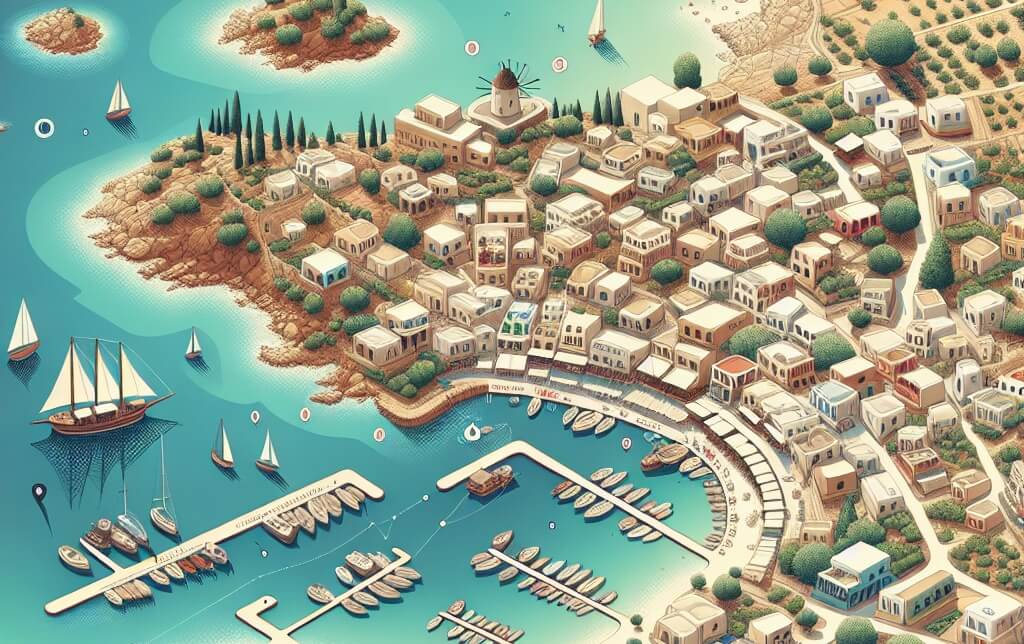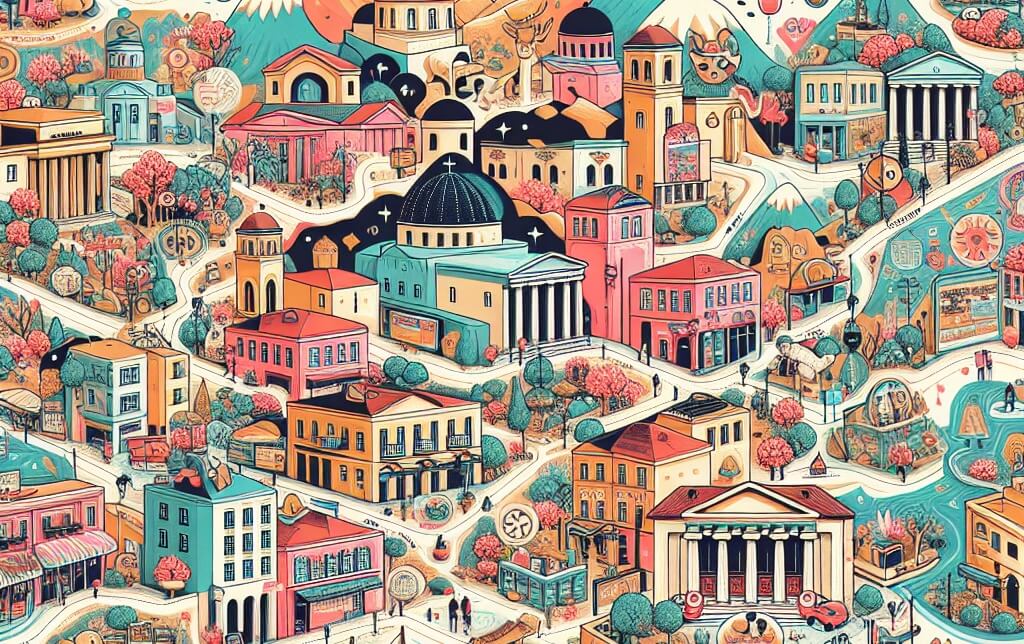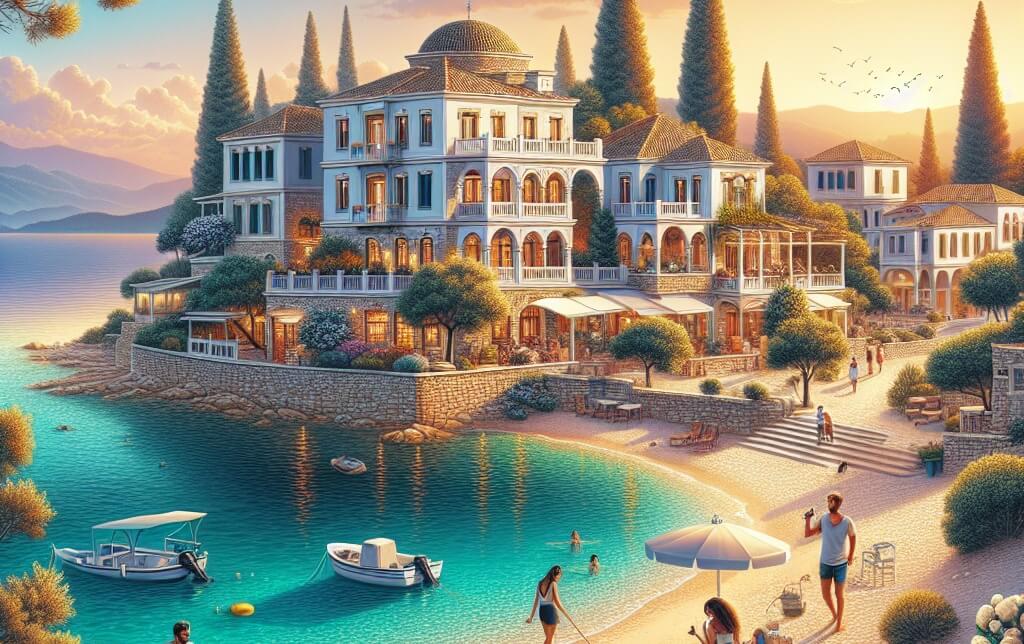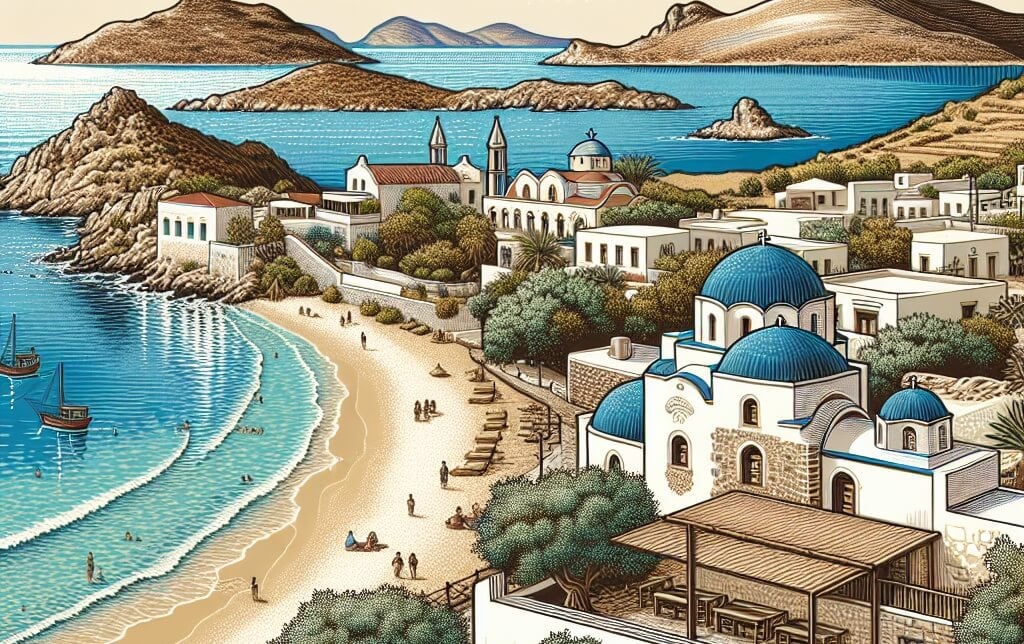
Explore the charm of Solun, Greece
Solun, Greece, is a captivating destination that offers a unique blend of history, culture, and natural beauty. Steeped in ancient mythology and rich in archaeological sites, Solun invites visitors to immerse themselves in its enchanting charm. The city's picturesque streets are lined with traditional Greek tavernas, where one can savor the delicious local cuisine and experience the warmth of Greek hospitality. The azure waters of the Aegean Sea beckon travelers to relax on pristine beaches and soak up the Mediterranean sun. With its vibrant atmosphere and vibrant history, Solun is a place that truly embodies the essence of Greece and leaves a lasting impression on all who visit.
Introduction
The introduction of Solun, Greece, serves as a gateway to the rich history and culture of this ancient city. Situated in the northern region of Greece, Solun, also known as Thessaloniki, is a city steeped in tradition and significance. With a history dating back to ancient times, Solun has been a thriving center of trade, culture, and religion. The city's strategic location along the Aegean Sea has made it a pivotal hub for commerce and communication throughout the centuries. Today, Solun continues to attract visitors from around the world who come to explore its archaeological sites, vibrant markets, and bustling waterfront.
Historical Background
The historical background of Solun, Greece dates back to ancient times, when it was known as Thessaloniki. Founded in 315 BC by King Cassander of Macedon, the city played a significant role in the Hellenistic period as a major center of trade and culture. Throughout its history, Solun has been influenced by various civilizations, including the Romans, Byzantines, and Ottomans, each leaving their mark on the city's architecture, customs, and traditions. The city's strategic location on the Aegean Sea has made it a hub for maritime commerce and cultural exchange. Today, Solun continues to thrive as a vibrant city with a rich historical heritage, attracting visitors from around the world to explore its ancient ruins, museums, and bustling markets.
Geographical Location
Solun, Greece is located in the northern region of Greece, specifically in the geographic region of Macedonia. It is situated on the Thermaic Gulf, which is an inlet of the Aegean Sea. The city of Solun is strategically positioned as a major port city, making it a significant hub for trade and commerce in the region. Its geographical location also contributes to its historical importance, as it has been a crossroads of various cultures and civilizations throughout its long history. Overall, the geographical location of Solun, Greece plays a crucial role in shaping its identity and significance in the region.
Demographics
In Solun, Greece, the demographics reflect a diverse population with a rich cultural heritage. The city's demographic composition encompasses a mix of Greeks, Turks, Albanians, and Romani people, contributing to a vibrant and dynamic community. The population of Solun is characterized by a blend of traditional values and modern influences, creating a unique social fabric that is both inclusive and welcoming. The demographics of Solun also highlight a growing trend of international migration, with individuals from various backgrounds choosing to make the city their home. Overall, the demographics of Solun underscore the city's status as a melting pot of cultures, fostering a sense of unity and diversity among its residents.
Economic Importance
The economic importance of Solun, Greece lies in its strategic location as a major port city in the region. The port of Solun serves as a crucial hub for trade and commerce, facilitating the transportation of goods and services both domestically and internationally. The city's maritime industry plays a significant role in supporting the local economy, providing employment opportunities and generating revenue through import and export activities. Additionally, Solun's proximity to key transportation routes and markets further enhances its economic significance, attracting investments and fostering business growth. Overall, the economic vitality of Solun is closely tied to its role as a dynamic center of trade and industry in the region.
Political Significance
The political significance of Solun, Greece lies in its historical and strategic importance as a key city in the region. Solun, also known as Thessaloniki, has a rich political legacy dating back to ancient times, when it served as a major hub of trade and culture in the Byzantine Empire. In modern times, Solun has played a crucial role in the political landscape of Greece, serving as a center for political activism, intellectual discourse, and civic engagement. The city's diverse population and vibrant political culture have contributed to its reputation as a dynamic and influential political center in the country. Furthermore, Solun's strategic location on the Aegean Sea has made it a focal point for geopolitical interests and regional alliances, adding to its political significance on both a national and international level.
Social and Cultural Aspects
Social and cultural aspects play a significant role in shaping the identity and dynamics of Solun, Greece. The rich history and heritage of the region have contributed to a deep sense of community and tradition among its inhabitants. Social gatherings and festivals are an integral part of life in Solun, providing opportunities for people to come together, celebrate their shared culture, and strengthen social bonds. Additionally, the cultural diversity of the region, influenced by its location at the crossroads of Europe and the Middle East, has created a unique tapestry of customs, languages, and beliefs that enrich the social fabric of Solun. These social and cultural aspects not only define the identity of the community but also contribute to its resilience and vibrancy in the face of modern challenges.
Education and Research
In Solun, Greece, education and research play a vital role in driving innovation and progress in various fields. The emphasis on education ensures that individuals have the necessary knowledge and skills to contribute effectively to the development of society. Furthermore, research activities conducted in Solun facilitate the discovery of new ideas, technologies, and solutions to address complex challenges. By investing in education and research, Solun is able to cultivate a culture of learning, creativity, and advancement, ultimately leading to a more prosperous and sustainable future for the community.
Tourism
Tourism in Solun, Greece plays a significant role in the local economy, attracting visitors from around the world to explore its rich cultural heritage, stunning landscapes, and historical sites. Solun, known for its picturesque beaches, vibrant markets, and delicious cuisine, offers a diverse range of experiences for tourists to enjoy. The city's historical significance, with landmarks such as the White Tower and the Arch of Galerius, adds to its allure as a popular tourist destination. The hospitality sector in Solun is well-developed, with a wide range of accommodation options to cater to the varying needs of travelers. Overall, tourism in Solun, Greece contributes to the city's prosperity and helps promote cultural exchange and understanding among visitors from different parts of the world.
Integration of Pertinent Topics
The integration of pertinent topics in the context of Solun Greece is crucial for a comprehensive understanding of the region's cultural, historical, and geographical significance. By incorporating relevant themes such as the ancient history of Solun, the impact of Ottoman rule, and the modern-day economic challenges facing the region, a more holistic perspective can be achieved. Additionally, the inclusion of topics related to the unique cultural heritage, traditional cuisine, and tourism potential of Solun can provide valuable insights into the current socio-economic landscape. Overall, the integration of pertinent topics serves to enrich the discourse surrounding Solun Greece and facilitates a deeper appreciation of its rich tapestry of experiences.









